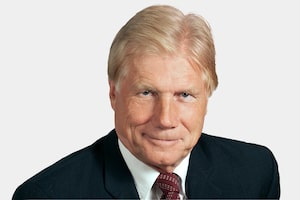In commenting once long ago about his star quarterback, the late Michigan State coach Duffy Daugherty found it hard to contain his enthusiasm over the flexibility of the young man. "Not only is he ambidextrous," he told reporters. "He can throw with either hand!"
That kind of elasticity is a nice talent to have in football - and in politics as well. It's among the principal reasons why Stephen Harper has maintained a lead over the Liberals throughout his five years in office.
The Prime Minister's ambidexterity has just been witnessed with his seeming switcheroo on the question of maintaining troops in Afghanistan after 2011. He's co-opting Liberal policy. Now it sounds like he, too, wants to have troops stay beyond the 2011 withdrawal deadline. It's just what the Grits don't want to hear, because it leaves them empty-handed.
Mr. Harper did the same last week with his move to block the buyout of the potash industry by Australian interests. The Liberals and the NDP were salivating at the prospect of bruising the Tories with the "selling out Canada" charge. Given the heavy opposition in Saskatchewan to the sale, the parties saw an opportunity to crack the Harper stranglehold on the Prairies. But after leading many to believe he was about to approve the buyout, the PM changed course. Just what the Grits didn't want to hear.
Mr. Harper's years in office have been hallmarked by these types of migratory moves. On the big files - on unity, on the economy, on war - he has shown himself to be adept at one of the oldest tricks in the political book - adopting the other side's positions. He'll go for long periods hived off on the right, appearing much like an unyielding ideologue, but then, at the big-ticket wicket, remove his horns.
The potash decision brought on much condemnation from conservative purists, they who are hesitant to understand that the art of governance in this far-flung kingdom is reliant on compromise. The purists were up in arms as well when Mr. Harper escaped from the confines of his economic orthodoxy and brought in - hello John Maynard Keynes - his deficit-inducing stimulus program to help steer the country from recessionary blight. The same reaction greeted another one of the PM's Bolshevik-friendly decisions - the one that saw him bail out the auto industry.
Conservatives are supposed to be about smaller government. The idea, as Ronald Reagan used to say, is to get the government off the backs of the people. Under the Harper government, small is big. Spending levels have been more akin to something you'd see from the NDP. As for getting off the backs of the people, it's been well-documented how its degree of control knows no bounds.
Another example of the PM's spurning of party gospel was the major move of his stewardship in regard to Quebec. In granting the Québécois nation status, he dropped his party's aversion to special treatment for the province and adopted a policy that had been put forward by Liberal Leader Michael Ignatieff. On Mr. Harper's election in 2006, the cry had been that the West wants in. One of the first things he did was to cozy up to the beast from the East.
In taking some of his heretical stands, the PM's hand has been forced by circumstance. Opening up to China, another move onto Liberal turf, was an example, as was the stimulus program. Pressure was becoming too great in both instances to do otherwise.
Thoroughbred right-siders can complain about all this - until they look at the results. Mr. Harper's policy-making has been conservative enough to allow him to maintain rock-solid support from his base. At the same time, he's occupied enough Liberal territory to leave that team lacking definition and at near historic lows in the polls.
Although it doesn't always appear as such, this PM has learned the vital lesson. In politics, you win by throwing with both hands.
 Lawrence Martin
Lawrence Martin